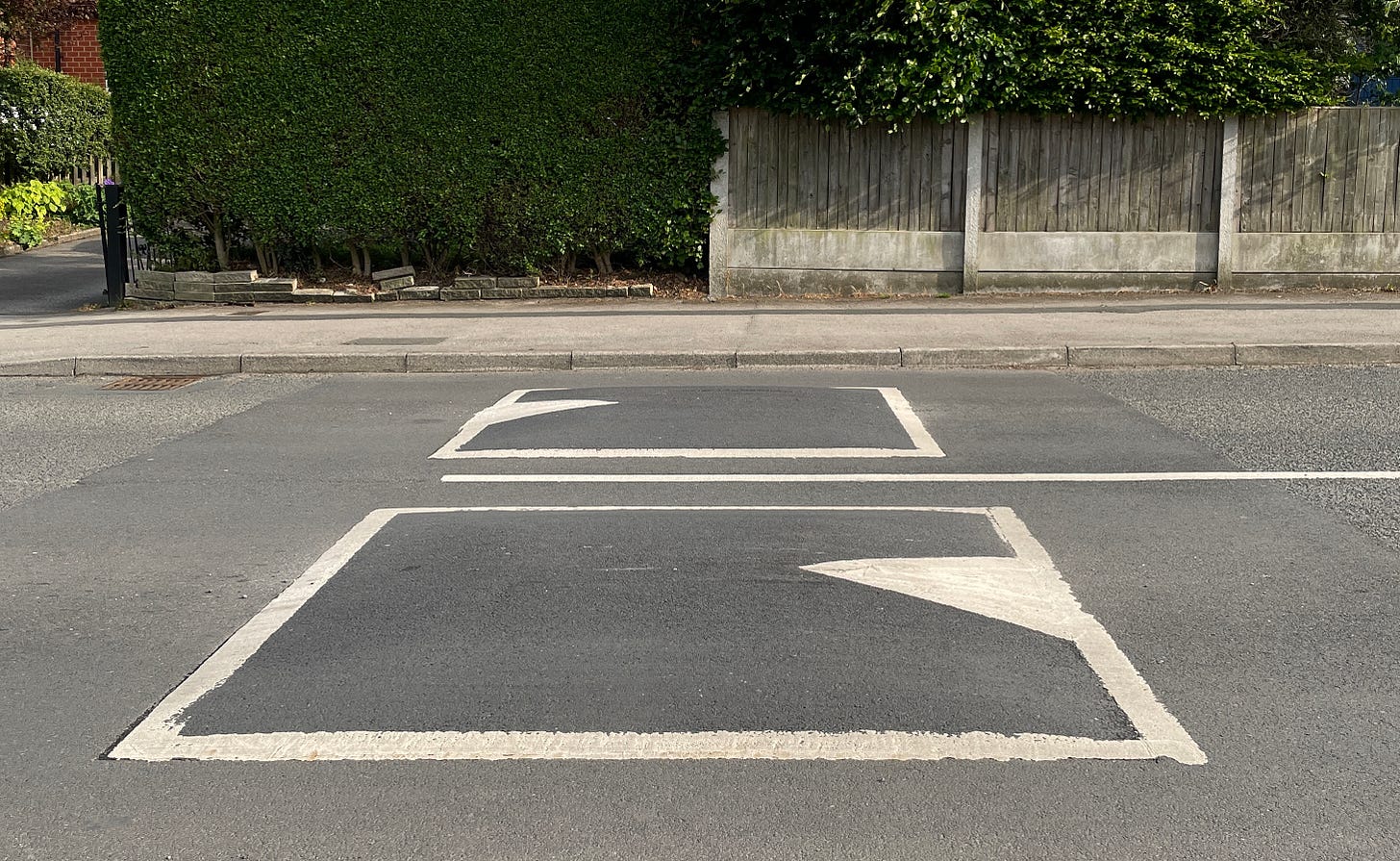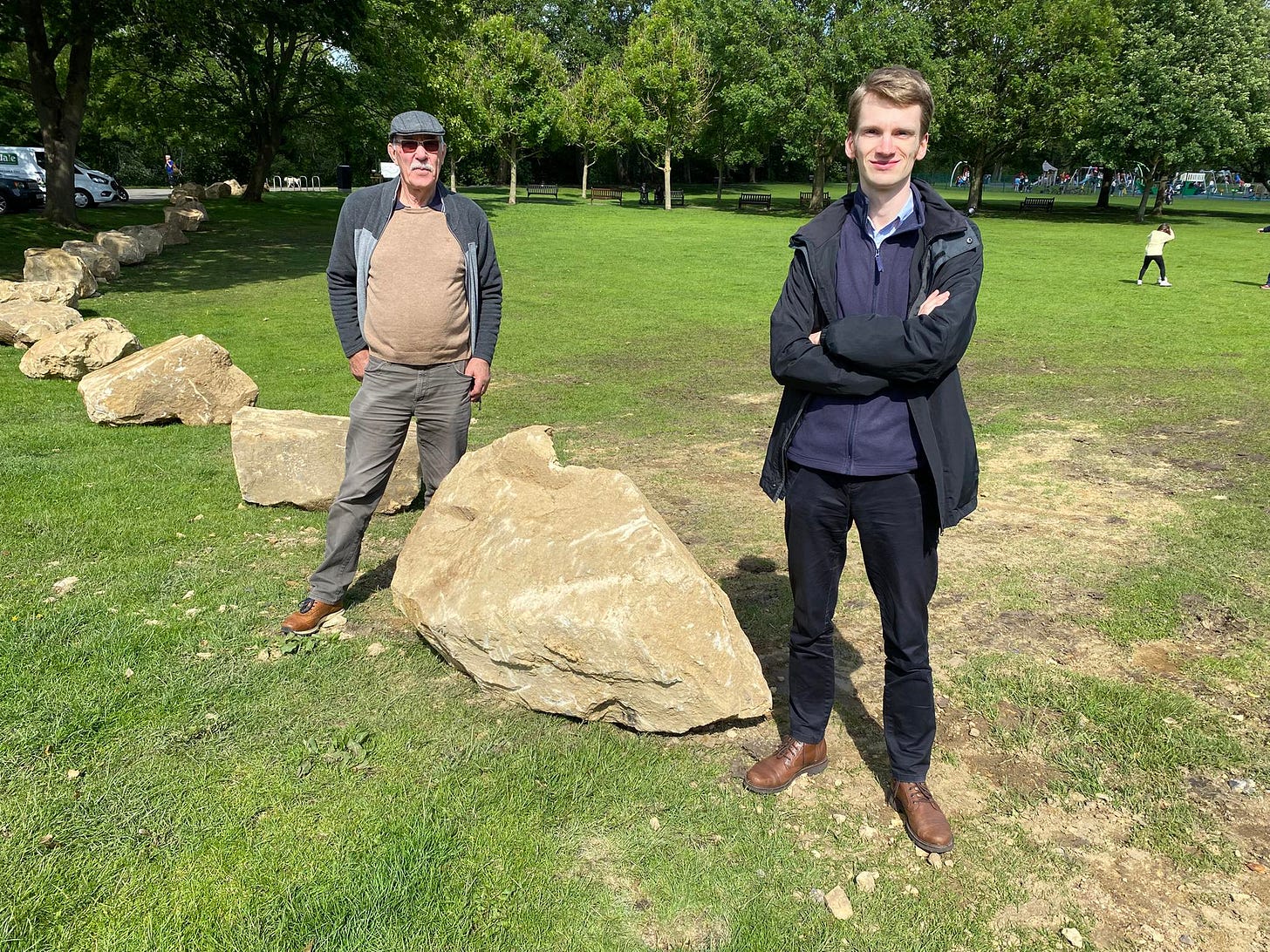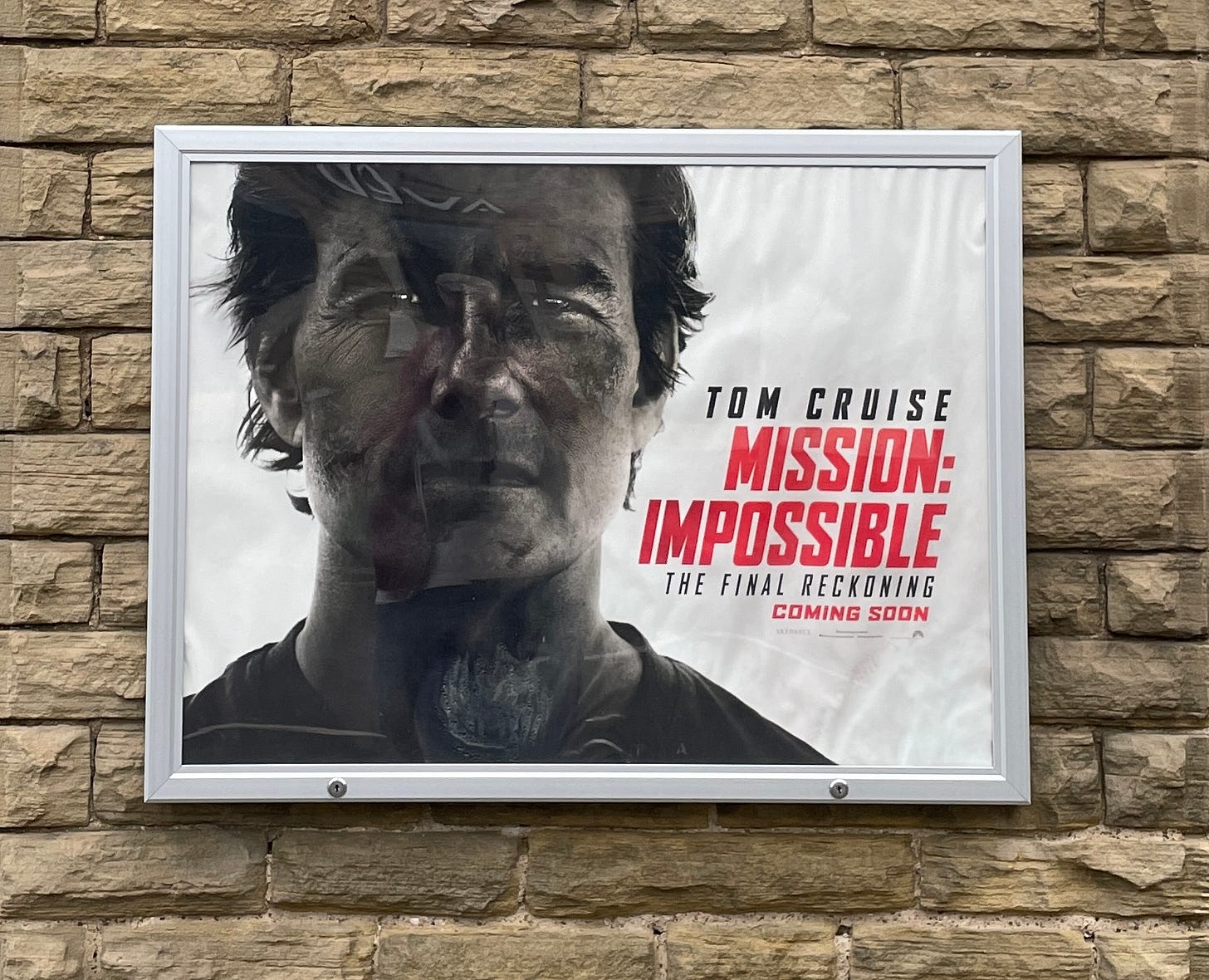"The cuts to winter fuel were a complete moral failing"
Welcome to The Ilkley Journal roundup 🗞️
Keighley and Ilkley MP welcomes winter fuel “u-turn”
The MP for Keighley and Ilkley has welcomed news that the chancellor has u-turned on her decision last year to limit winter fuel payments to pensioners receiving pension credits or other means-tested benefits.
Winter fuel payments, a tax-free, state-funded payment “intended to give older people reassurance they can afford to heat their homes in winter”, had been available to all pensioners since 1997.
However, it was controversially axed by Rachel Reeves towards the end of July last year, just weeks after the Labour government was elected.
It was one of a number of cuts announced by the government to fill the “£22 billion blackhole” they claimed was left by the Conservatives after 14 years in power.
Robbie Moore said on Facebook that the decision to increase the number of people who will receive winter fuel payments – reportedly nine million pensioners with an income of, or below, £35,000 a year – “as a huge win” for those who “campaigned so hard against this awful measure”.
The Conservative MP, who surprisingly bucked the trend by getting re-elected in 2024 – the constituency has tended to be a bellwether seat – added: “Let’s never forget what this government did against the pleas of local charities, pensioners and without a proper impact assessment in place. As I said in my vote against this policy when it first came out, the cuts to winter fuel were a complete moral failing.
“So, as they announce this screeching u-turn today, the government shouldn't pretending (sic) this is a win. They should be ashamed of what they did to our pensioners who went without last winter. Our pensioners will certainly not forget.”
In making the announcement, Reeves defended the original decision to axe winter fuel payments for all but the poorest pensioners.
She said that while it was a hard decision to make, it was, despite the reversal suggesting that it had been a mistake to severely limit eligibility, the “right decision”. She continued:
“It is also right that we continue to means test this payment so that it is targeted and fair, rather than restoring eligibility to everyone, including the wealthiest.
“But we have now acted to expand the eligibility of the Winter Fuel Payment so no pensioner on a lower income will miss out. This will mean over three-quarters of pensioners receiving the payment in England and Wales later this winter.”
Caroline Abrahams, charity director at Age UK, described the change as “a good day for older people” and thanked everyone who had continued to speak out against the original decision.
She added that it would mean those who were hit the hardest by the decision last summer – mainly those entitled to pension credit but not claiming, those on small incomes that took them just above the threshold and those who “face extremely high bills because of severe ill health or disability – will feel relieved.
“Of course, we would have much preferred if the government had taken this approach last summer,” Abrahams said. “But we are pleased it means that older people can look ahead to the coming winter with more confidence.”
Bradford Council lauds government’s free school meals expansion
Labour’s plan to expand free school meals to all children who live in homes that receive universal credit has been welcomed by Bradford Council.
According to the government, the scheme, which is expected to launch in September 2026, will benefit more than half a million school kids in England.
Bradford Council said that the development comes on the back of its own efforts to ensure eligible families are “taking advantage” of the offer of free school meals. It explained:
“1,095 families in the district will save hundreds of pounds a year thanks to a pilot data-matching scheme that Bradford Council has run.
“To ensure all eligible children get the free school meal they are entitled to, the council reviewed its data to identify families who hadn't applied but would have qualified. These families were then informed they would be automatically enrolled unless they opted out.”
At the moment, for families on universal credit to be eligible for free school meals, their total household income must be less than £7,400 a year after tax. Universal credit is a monthly payment that is provided to people either on a low income, unemployed or unable to work with their living costs.
Sue Duffy, executive member for children and families at Bradford Council, described the announcement as a “fantastic outcome” for children, families and schools across the district. She added:
“Free school meals offer multiple benefits to children's health, well-being, and education, as well as positive economic impacts for families.
“A nutritious lunch can improve children's concentration, learning, and overall academic performance, while saving families around £500 per child each year.”
According to Christine Farquharson, associate Director at the Institute for Fiscal Studies, the government’s plan will, in the short run, cost less and benefit fewer people because of “transitional protections”. She added:
“If the government's main interest is to reduce child poverty, there are other measures – such as lifting the two-child limit – that would have a lower cost per child lifted out of poverty."
The last English Indices of Deprivation, which was published in 2019, Bradford is the 13th most deprived district in England – and the sixth most deprived for employment and the fifth most deprived for income. Around 40% of children in the local authority live below the poverty line.
Bradford Council’s anti-poverty strategy, 2022–2027, has developed seven themes to help it tackle deprivation in the district.
They include financial inclusion; the best start and best education; better health and better lives; better skills, good jobs and a growing economy; better housing, safe, active and inclusive communities; protecting the most vulnerable and supporting families; and participation and voice.
Ilkley residents and businesses encouraged to attend 20mph drop-in session
A group of Conservative councillors in Ilkley is encouraging residents and businesses to attend a drop-in session on Thursday 3 July, as part of a fact-finding mission to better understand the impact that the controversial 20mph traffic zone is having on them.
The event, organised by local councillors Andrew Loy, Steve Butler, Catherine Cheater, David Nunns and Sean Spence, has been put together in response to ongoing criticisms of the scheme and what they describe as the “first face-to-face evidence” they’ve received from locals.
All of the above are among the 14 councillors who make up Ilkley Town Council, with Loy and Nunns also representing Ilkley on Bradford Council. The group noted that this was not yet an official initiative of Ilkley Town Council.
Some of the problems recently highlighted by residents include:
Households experiencing noise and vibrations when vehicles pass over the speed bumps
Families struggling to get back to sleep because of instances of the above at unsociable hours
Structural property damage
These recent examples come on the back of previous criticisms that had been gathered by Ilkley Feedback (described as an apolitical group), including “road safety issues, damage to vehicles and pain and suffering caused to back sufferers”.
“The agreement signed in 2022 was made in the belief that the 20mph scheme would not cause harm to Ilkley and the people who live here,” Butler said. “It appears that this is not correct as it is now clear that the lives of many are being badly affected.
“We want to get to the bottom of this and invite residents and businesses experiencing problems to come to the drop-in session to let us know what is happening.”
The councillors stressed that the drop-in session is not a meeting where the issue will be debated. Instead, attendees will be asked to share their experiences. The group will then collate all the information and present it to Bradford Council.
Residents and businesses that can’t attend but would still like to share their experiences are recommended to get in touch via email (ilkley.feedback@mail.co.uk). They will receive a form to fill out.
The 20mph zone drop-in session will take place between 5.30pm–7.30pm on Thursday 3 July at Christchurch on The Grove.
News in brief
Addingham restaurant appeals for help after fire destroys business
The Joyful Deli in Addingham has launched a fundraising campaign to help it rebuild its restaurant after a fire tore through it on 9 June. “The fire consumed all the furniture, much of which had been lovingly collected and restored by [the owners] Jilly and Mike over the past five years,” the GoFundMe page explained. “These weren’t just chairs and tables — they were part of the soul of The Joyful Deli. The barn itself, a beautiful old building full of character, has been left in ruins.”
Local Conservative councillors welcome Riverside Park boulders
New boulders installed at Ilkley Riverside Gardens have been welcomed by local Conservative councillors, Andrew Loy and David Nunns. Writing on Facebook, the duo said: “We’re pleased to have been able to secure funding [around £12,000] from Ilkley Town Council for these defences. There are still a couple of gaps to secure, but this should help to deter the sort of unauthorised incursions and encampments we saw last summer.” They added Bradford Council, which turned down a funding request, should have “footed the bill”.
Limited free one-hour parking spots in Ilkley could be removed
Bradford Council is proposing to remove one hour of free parking from the streets of Ilkley. Residents and businesses have been invited to have their say as part of a public consultation. In response to the news, Ilkley and Ben Rhydding’s two Conservative district councillors said on Facebook: “ “It is especially perverse to think that they may be charged to park at their church on bank holidays, including Christmas Day and Good Friday.”
What we’re reading, watching, listening to
Read | Is this Fascism? by Daniel Trilling (London Review of Books)
In reviewing Richard Seymour’s latest book, Disaster Nationalism, which seeks to explain how far-right populists have successfully used apocalyptic messaging to exploit a deep-rooted and widespread sense of hopelessness, Daniel Trilling explores its links to twentieth-century fascism, whether what we’re seeing today, from Trump and Modi to Farage, can be described as fascistic and how a very 21st century style of nationalism has been fuelled and (cha-ching) monopolised by social media.
Watch | Mission Impossible – The Final Reckoning
The end of the world. Nuclear bombs. AI gone wild. And Tom Cruise as Ethan Hunt (and Tom Cruise running, Tom Cruise with his top off, Tom Cruise crying, Tom Cruise, Tom Cruise with long hair, Tom Cruise performing another daredevil stunt …). Mission Impossible – The Final Reckoning (the supposed final instalment in a franchise that began way back in 1996) is pure popcorn blockbuster fun made for the big screen. Plenty of nostalgia and action, you can’t ask for anything more.
Listen | The Reunion: the coalition of 2010 (BBC Radio 4 available on BBC Sounds)
The idea of a coalition in Westminster, between the Conservatives and the Liberal Democrats, seemed like a fanciful idea. Yet, in the chaos of the aftermath of the indecisive general election of 2010, with the Tories unable to secure an outright majority, an unlikely deal was hammered out. In this podcast, Kirsty Walk assembles some of the key figures at the time. A fascinating listen, more so given the way things currently look for the two parties (the Conservatives flatlining under Kemi Badenoch and the Lib Dems resurgent under Ed Davey).
Quote of the week
Speaking at an event where he was revealed as Reform UK’s new chairman, David Bull, a former doc turned TV presenter – and another lapsed Conservative turned Reform UK enthusiast – set out his ambitions and plans for the party in his new role, which was, bizarrely, recently vacated by Zia Yusuf who is now heading up Reform’s gimmicky, unoriginal DOGE UK. The latter was described by The Institute for Government as a “superficial response to deep problems in local government”.







